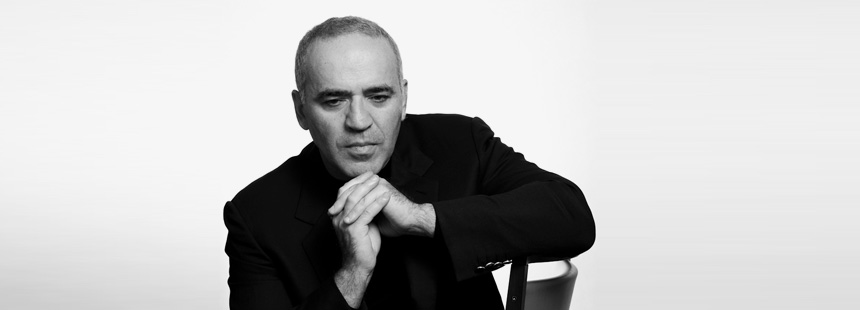

Writing for the Daily Beast, Garry Kasparov reminds us that while Boris Berezovsky’s death may make a flashy headline, the real focus should be on the crimes being committed by the man he put in the Kremlin – Vladimir Putin.
Boris Berezovsky’s Dubious Legacy Lives On in the Kremlin
By Garry Kasparov
April 1, 2013
The Daily Beast
When Boris Berezovsky was found dead in his home in England last week, it was an abrupt conclusion to the long final act of a farce. Although after such a complicated life, even his death may turn out to be a question mark instead of a full stop. A kingmaker who was exiled by the man he made king, Berezovsky was the architect of the Russian “managed democracy” scheme now headed by his former acolyte Vladimir Putin, a system dedicated to finding every possible way to subvert real democracy and to centralize power in the hands of “wise men” like himself. Really it should be “wiseguys” in the Mario Puzo sense, as what this system most resembles is a mafia state with a few token democratic decorations.
The task of burying Berezovsky is being taken care of with speed and diligence by his various enemies, especially the Kremlin and its wide circle of media lapdogs and employees inside and outside of Russia. Now that he is dead, and with that the possibility of being sued for libel, they are taking the gloves off and accusing him of everything under the sun, including murder. Here in Russia, Berezovsky has long been held up as a boogeyman along with other oligarchs driven into exile or otherwise persecuted by Putin and his allies.
What goes unmentioned in these tall tales of “Vladimir the Vanquisher of the Oligarchs” is what happened to the rest of them. Putin went after only those he perceived as a threat to his power and the state-security apparatus he quickly reestablished. The rest were given the opportunity to swear loyalty to him and become a partner in the greatest epidemic of larceny in world history. There was plenty of cash to go around. By the time Putin took power in 2000, Russia was seeing some of the benefits of economic reforms and access to the global marketplace. But what really made the difference was the decade-long 500 percent surge in oil prices that filled the state coffers no matter how much was skimmed off the top (and the middle).
The money may be long gone and hard to find—hidden as it is in Swiss accounts, New York real estate, and London football clubs—but there’s a relatively easy way to check the results. Just look at the latest Forbes list of billionaires and compare it to those that came out when Putin first took office. The number of Russians on the list has gone from zero in 2000 to 110 on the latest edition. (And this is without one prominent name that would surely top the Russian list were his assets known. Unless of course you believe that the man who tightly controls the destiny of 110 billionaires is himself not interested in accumulating wealth.) Russia has nearly as many billionaires as China, whose economy is four times larger, and almost double the number of Germany, whose economy is 60 percent larger than Russia’s. This incredible feat is hardly a reflection of a broad-based economic expansion. While the U.S. still has more billionaires per capita than Russia, it also ranks near the top in GDP per capita while Russia languishes in the mid-50s on that list, just ahead of Gabon and Botswana.
Putin’s real achievement was to effectively coordinate the looting of the wealth of the Russian state and countryside. Perhaps Berezovsky’s bitterness in exile was partially due to being deprived of the chance to participate in Putin’s culmination of his schemes. From being the power behind the throne, Berezovsky spent a decade in London as little more than a jester, making wild statements and squandering his remaining assets on lawsuits and press battles. He never had the courage to fight against Putin from afar, as others have.
It is still worth condemning the eagerness of some Western news outlets to assist in the Kremlin’s propaganda campaign against Berezovsky. Surely there are enough objectionable facts about the dead man available to make spreading slanderous theories unnecessary. Yet Forbes still found it worthy to ask, in a headline, if Berezovsky killed Forbes editor Paul Klebnikov in 2004. Klebnikov was shot in cold blood in front of his office in Moscow, a crime that is still unresolved, like so many others acts of brutal violence against the press in Russia. Making unsupported accusations like this—nothing resembling evidence is provided in the Forbes article, and the charge was never made by Forbes while Berezovsky was alive—assists the Kremlin in discrediting a critic and in throwing chaff into the air to hide the fact that Putin and his cronies have continued Berezovsky’s larcenous practices in Russia.
Those journalists who wish to display their investigative talents more usefully should not ask what happened to Berezovsky. Instead, they should look into the dealings of the other Russian oligarchs, the ones whose names are routinely celebrated in the London financial pages, not the obituaries. Putin’s circle has achieved a legitimacy Berezovsky could scarcely have dreamed of and the United Kingdom welcomes looted Russian assets with open arms. Berezovsky may briefly be a story, but he was history long ago. What matters now is to investigate the crimes still in progress, those being committed by Berezovsky’s most successful project, Vladimir Putin.
Read the original at The Daily Beast.

